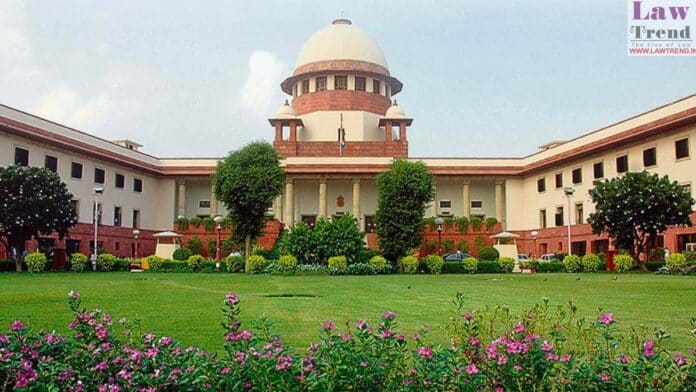The Supreme Court on Friday asked what was the harm if a person provided the details of caste or sub-caste during the Bihar caste survey when an individual’s data was not going to be published by the state.
A bench of Justices Sanjiv Khanna and SVN Bhatti today commenced hearing a batch of pleas challenging the August 1 decision of the Patna High Court which gave the go-ahead to the caste survey. Some of these petitions have claimed the exercise was an infringement of people’s right to privacy.
“If someone gives the name of his caste or sub-caste, and if that data is not published, then what is the harm. What is being sought to be released is cumulative figures. How does that affect the right to privacy? What questions (in the questionnaire prepared for the survey) do you think are contrary to Article 21 (right to life and personal liberty) of the Constitution,” the bench asked senior advocate CS Vaidyanathan, appearing for NGO ‘Youth for Equality’.
The NGO is among various petitioners that have challenged the Bihar government’s decision to conduct a caste survey.
At the outset, senior advocate Shyam Divan, appearing for the Bihar government, said the caste survey was completed on August 6 and the data gathered uploaded by August 12.
The bench told Divan it is not issuing notice on the petitions as then the question will arise about interim relief and the hearing will get pushed back to November or December.
Senior advocate Aprajita Singh, representing one of the petitioners, said they are aware that the exercise has been completed but would argue for a stay on the publication of the data.
The bench said it is not going to stay something unless a prima facie case is made out as there is a judgement of the high court in favour of the state government.
“Whether you like it or not, the data has been uploaded,” the bench told the counsel.
The data, which has been collected during the survey, has been uploaded on the BIJAGA (Bihar Jaati Adharit Ganana) app.
The bench told Divan there are two things one that individual data will not be made public and two that the cumulative data will be shared with different departments for analysis.
Divan said that’s the point if individual data is not to be released, then where is the issue.
During the hearing, Justice Khanna said unfortunately in Bihar, normally the caste of an individual is known to neighbours although such a situation does not exist in a city like Delhi.
Vadiyanathan contended a constitution bench of this court had in 2017 ruled that the right to privacy cannot be infringed upon except under a fair, just and reasonable law with a legitimate aim.
“There is no law but an executive order (for caste survey) and no reasons have been given and communicated in that order….What is infringed is Article 14 and 21 (right to equality before law and right to life and personal liberty) and a normal executive order will not suffice,” he contended.
The bench said the notification for caste survey is not a quasi-judicial order where there is a need to communicate the reason.
“This is an administrative decision, where there may not be much detail for the public,” the bench added.
Vaidyanathan said mere notification cannot take the nature of statute or law as envisioned in the 2017 verdict in the KS Puttaswamy case, which dealt with the right to privacy.
“When Article 21 is sought to be invaded, it has to be supported by a statute not a notification. Please see the questions which were asked from the public in the survey,” Vaidyanathan told the bench, while referring to the questionnaire.
Also Read
The bench then asked him which questions he thought were contrary to Article 21 of the Constitution and infringed the right to privacy. Vaidyanathan responded by saying people have been asked about their gender, caste, income and answering all these questions have been made mandatory.
“Anything related to caste is a matter of privacy. All the 17 questions are made mandatory to be answered by the public and only the Aadhaar number is voluntary,” the senior lawyer said, adding that the real question is can the public be asked to furnish these details in the absence of a law.
The bench said there was no penalty if the public does not give these details.
The bench adjourned the hearing for August 21 after senior advocate Aprajita Singh said she needs time to make her submissions.
On August 7, the top court had refused to stay the Patna High Court’s order giving the go-ahead for the caste survey.
Besides the pleas filed by NGOs ‘Youth for Equality’ and ‘Ek Soch Ek Paryas’, another petition has been filed by Nalanda resident Akhilesh Kumar, who has contended that the notification issued by the state government for the exercise is against the constitutional mandate. There are some other petitions.
Kumar’s petition says in terms of the constitutional mandate, only the Union government is empowered to conduct a census.
The plea, filed through advocate Barun Kumar Singh, said the entire exercise of conducting a “census” by the Bihar government is without authority and legislative competence, and reeks of malafide.
The high court had said in its 101-page verdict, “We find the action of the state to be perfectly valid, initiated with due competence with the legitimate aim of providing development with justice .”




